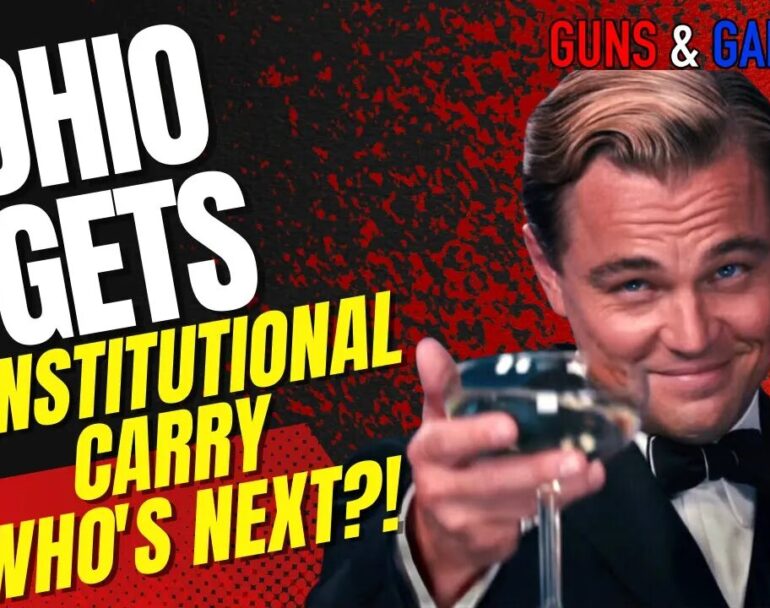
Signed as Law: Ohio Enacts Permitless Carry Bill Despite Intense Police Opposition
By: Mike Maharrey
COLUMBUS, Ohio (March 15, 2021) – Yesterday, Ohio Gov. Mike DeWine [facing stiff opposition in Ohio’s May primary], signed a bill into law legalizing permitless carry in the state despite strong law enforcement opposition. The enactment of this so-called “constitutional carry” law will also foster an environment more hostile to federal gun control.
Sen. Terry Johnson (R) introduced Senate Bill 215 (SB215) in November. Under the law, adults 21 and over who can legally possess a handgun in the state of Ohio can carry a concealed firearm without a state-issued permit. The legislation retains the current permitting process for those who wish to obtain a license in order to carry concealed in other states with CCDW reciprocity with Ohio.
The Senate passed SB215 by a 23-8 vote. The House passed the measure by a 58-36 vote. With Gov. Mike DeWine’s signature, the law will go into effect 91 days after its filing with the Secretary of State for final enrollment.
SB215 also clarifies the Ohio “duty to inform” law. Under the old law, a person carrying a concealed firearm was required to inform a law enforcement officer “promptly” upon encountering the officer. The new law removes the burden of notification from the individual. A person carrying a concealed firearm must only inform the officer if asked.
SB215 passed despite intense law enforcement opposition that wasn’t even mentioned by groups supporting the bill, like the NRA. A representative from the Fraternal Order of Police and Hamilton County Sheriff Charmaine McGuffey were among law enforcement lobbyists who testified personally against the bill.
EFFECT ON FEDERAL GUN CONTROL
While permitless carry bills do not directly affect federal gun control, the widespread passage of permitless conceal carry laws in states subtly undermines federal efforts to regulate guns. As we’ve seen with marijuana and industrial hemp, a federal regulation becomes ineffective when states ignore it and pass laws encouraging the prohibited activity anyway.
The federal government lacks the enforcement power necessary to maintain its ban, and people will willingly take on the small risk of federal sanctions if they know the state will not interfere. This increases when the state actively encourages “the market.”
Less restrictive state gun laws will likely have a similar impact on federal gun laws. It will make it that much more difficult for the feds to enforce any future federal gun control, and increase the likelihood that states with few limits will simply refuse to cooperate with federal enforcement efforts.
State actions such as passing “constitutional carry” lower barriers for those wanting the option of defending themselves with firearms and encourage a “gun-friendly” environment that would make federal efforts to limit firearms that much more difficult.